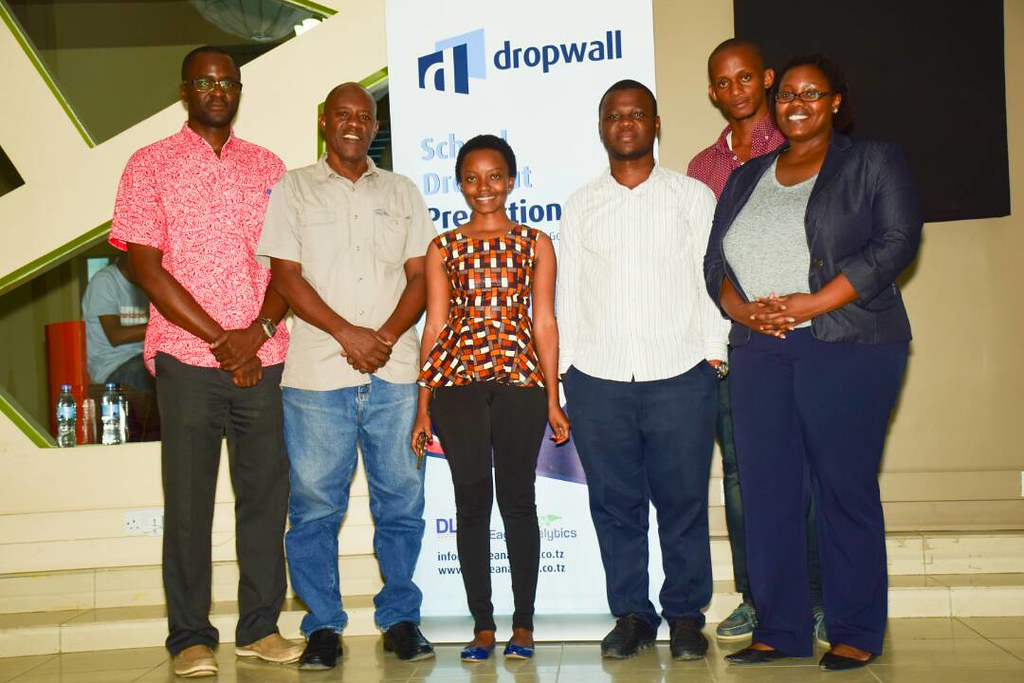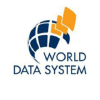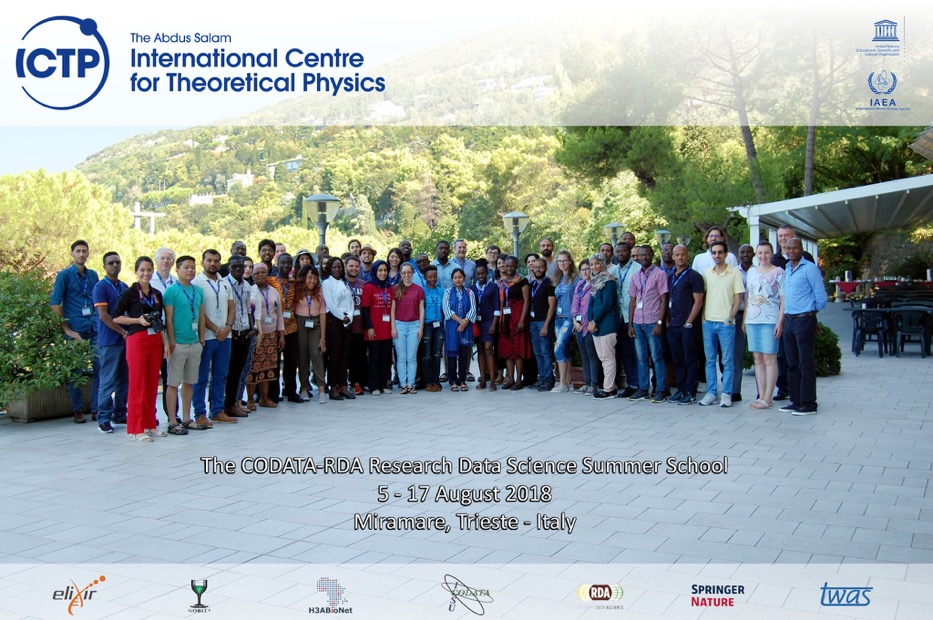  Walloped by heatwave, Greenland sees massive ice melt How investing in early warning systems proves beneficial Improving communication and integration of geospatial information WHO joins coalition for free digital access to research health Laos invests in disaster risk reduction to thwart future disasters NZ: The legal threat and big opportunity in Māori engagement on Climate Change response UNEP: Rebuilding the future role of humanitarian aid in climate resilience Climate-driven extreme weather is threatening old bridges with collapse  UN ESCAP: Asia-Pacific Disaster Report Companies and climate resilience: Mobilising the power of the private sector to address climate risks Climate Change and Migration in Vulnerable Countries CDP: Major risk or rosy opportunity – Are companies ready for climate change?With 2017 and 2018 seeing significant losses from extreme weather incidents in parts of the world, financial regulators and investors are becoming increasingly focused on ensuring the private sector is ready for the risks and opportunities of climate change.  UN: Climate Action Summit 2019 – 23 September (UN HQ, New York) CODATA 2019 Beijing – Towards next-generation data-driven science: policies, practices and platforms – 19-20 September CODATA – Workshop: Implementing FAIR data for people and machines – 11 September (Washington, DC) International Conference on Sustainable Development (ICSD 2019) – 24-25 Sept – (New York) Flood Expo 2019 – 11-12 September (Birmingham, England)  |
Author Archives: codata_blog
Innovative ways to help your organisation become more effective
 Are you interested in the Research Infrastructures environment? Looking to enhance your knowledge and fine-tune your management skills? Apply now for an Executive MBA in Management of Research Infrastructures (30/9 deadline).
Are you interested in the Research Infrastructures environment? Looking to enhance your knowledge and fine-tune your management skills? Apply now for an Executive MBA in Management of Research Infrastructures (30/9 deadline).
The Executive Masters in Management of Research Infrastructures is an international management development Programme tailored to the specific needs of Research Infrastructures. This Programme is designed to give experienced science professionals the skills and knowledge they need to take on greater managerial responsibilities.
Take the opportunity to improve your managerial skills attending the Full Master programme or single Modules, attending only specific courses on particular topics. You will have the chance to share your ideas with top scientists and managers in from all over Europe, such as Iain Mattaj (HT, Director General), Ivan Baines (MPI-CPG, Chief Operating Officer) and Jacques Demotes (ECRIN-ERIC).
More details: www.emmri.unimib.it/en
What can this Executive Masters offer you?
- A global network of Research Infrastructure colleagues in similar leadership positions
- An international Faculty composed by dedicated professors and acclaimed experts from research infrastructures
- A better understanding of how Research Infrastructures in different countries are responding to common challenges
- Greater awareness of your leadership strengths and weaknesses.
- Innovative ways to help your organisation become more effective.
The Masters Programme gives you three alternative enrolment options:
A) FULL PROGRAMME
KEY FACTS• Target: Executive Deadline for application: 30th September 2019 Programme start date: 4th March 2020 |
Who should Apply ?• Director Generals, Chief Operating Officers or their equivalent |
B) OPEN PROGRAMME
KEY FACTS• Target: Executive & Middle Management Deadline for applications: More details on http://www.emmri.unimib.it/en/home-open-programme/ |
This format gives you the opportunity to take individual modules to develop specific expertise if the full Executive Master is not required. We are expanding the portfolio of open-enrolment modules for 2019-2020. We can help you finding the course that meets your needs: CONTACT US |
C) TEAM APPLICATION
KEY FACTS• Target: Executive & Middle Management Deadline for application: 30th September 2019 Programme start date: 4th March 2020 |
We offer Research Infrastructures the option to enter the Programme as an organisation and split the 12 modules among staff members according to their organisational needs. This option is not covered by a Master certificate.
The Research Infrastructure will be awarded with a Certificate of Excellence in Research Infrastructure Leadership, flagging it as an organisation that values staff development, thereby enhancing its attractiveness as an employer. |
August 2019: Publications in the Data Science Journal
August 2019: Publications in the Data Science Journal
 Title: Development of a Climate Forcing Observation System for Africa: Data-Related Considerations Title: Development of a Climate Forcing Observation System for Africa: Data-Related ConsiderationsAuthor: Johannes Beck, Ana López-Ballesteros, Wim Hugo, Robert Scholes, Matthew Saunders, Jörg Helmschrot URL: http://doi.org/10.5334/dsj-2019-042 |
|
 Title: Practical Application of a Data Stewardship Maturity Matrix for the NOAA OneStop Project Title: Practical Application of a Data Stewardship Maturity Matrix for the NOAA OneStop ProjectAuthor: Ge Peng, Anna Milan, Nancy A. Ritchey, Robert P. Partee II, Sonny Zinn, Evan McQuinn, Kenneth S. Casey, Paul Lemieux III, Raisa Ionin, Philip Jones, Arianna Jakositz, Donald Collins URL: http://doi.org/10.5334/dsj-2019-041 |
|
 Title: NASA’s Earth Observing Data and Information System – Near-Term Challenges Title: NASA’s Earth Observing Data and Information System – Near-Term ChallengesAuthor: Jeanne Behnke, Andrew Mitchell, Hampapuram Ramapriyan URL: http://doi.org/10.5334/dsj-2019-040 |
|
 Title: Research Data Publication: Moving Beyond the Metaphor Title: Research Data Publication: Moving Beyond the MetaphorAuthor: Sarah Callaghan URL: http://doi.org/10.5334/dsj-2019-039 |
|
 Title: Teaching Research Data Management for Students Title: Teaching Research Data Management for Students Author: Cord Wiljes, Philipp Cimiano URL: http://doi.org/10.5334/dsj-2019-038 |
|
 Title: Application of Natural Language Processing Algorithms to the Task of Automatic Classification of Russian Scientific Texts Title: Application of Natural Language Processing Algorithms to the Task of Automatic Classification of Russian Scientific TextsAuthor: Aleksandr Romanov, Konstantin Lomotin , Ekaterina Kozlova URL: http://doi.org/10.5334/dsj-2019-037 |
Disaster Risk Reduction and Open Data Newsletter: August 2019 Edition
  Technical Working Group on Sendai Hazard definitions and classification to be launched The most “unsexy” data could hold the most promise Preview of new report on modern statistical systems Bristol, UK publishes Voluntary Local Review High-Level Political Forum on Sustainable development: Inclusion, Empowerment and Equality is integral, says UN Chief Sustainable Data will falter without Data  Executive Summary, Counting on the World to Act (2019) The World Bank – The Chronology of a Disaster: A review and assessment of the value of acting early on household welfare 2019 UNDRR Global Assessment Report Global Platform for Disaster Risk Reduction 2019: Proceedings No Broken Link – The Vulnerability of Telecommunication Infrastructure to Natural Hazards  CODATA 2019 Beijing – Towards next-generation data-driven science: policies, practices and platforms – 19-20 September Australian Disaster Resilience Conference 2019 – 28th – 29th August (Melbourne) ICSD 2019 : 7th International Conference on Sustainable Development, 4 – 5 September 2019 (Rome, Italy) Flood Expo 2019 – 11th-12th September (Birmingham, England)  |
July 2019: Publications in the Data Science Journal
July 2019: Publications in the Data Science Journal
Author: Yan Sun URL: http://doi.org/10.5334/dsj-2019-036 |
|
Author: Sebastián M. Palacio URL: http://doi.org/10.5334/dsj-2019-035 |
|
Author: Mary-Jane Morongwa Bopape , Happy Marumo Sithole, Tshiamo Motshegwa, Edward Rakate, Francois Engelbrecht, Emma Archer, Anneline Morgan, Lwando Ndimeni, Joel Botai URL: http://doi.org/10.5334/dsj-2019-034 |
|
Author: Seyni Salack , Aymar Bossa, Jan Bliefernicht, Sina Berger, Yacouba Yira, Kamil A. Sanoussi, Samuel Guug, Dominicus Heinzeller, Adolphe S. Avocanh, Barro Hamadou, Symphorien Meda, Belko A. Diallo, Igor B. Bado, Inoussa A. Saley, Elidaa K. Daku, Namo Z. Lawson, Aida Ganaba, Safiétou Sanfo, Koufanou Hien, Arone Aduna, Gero Steup, Bernd Diekkrüger, Moussa Waongo, Antonio Rogmann, Ralf Kunkel, John P. A. Lamers, Mouhamadou B. Sylla, Harald Kunstmann, Boubacar Barry, Laurent G. Sedogo, Christian Jaminon, Paul Vlek, Jimmy Adegoke, Moumini Savadogo URL: http://doi.org/10.5334/dsj-2019-033 |
|
Author: Nuno Antonio, Ana de Almeida, Luis Nunes URL: http://doi.org/10.5334/dsj-2019-032 |
|
Author: Stephanie Russo Carroll, Desi Rodriguez-Lonebear, Andrew Martinez URL: http://doi.org/10.5334/dsj-2019-031 |
|
Author: Gretchen Greene , Raymond Plante, Robert Hanisch URL: http://doi.org/10.5334/dsj-2019-030 |
|
Author: Sam Grabus, Jane Greenberg URL: http://doi.org/10.5334/dsj-2019-029 |
|
Author: Siviwe Bangani, Mathew Moyo URL: http://doi.org/10.5334/dsj-2019-028 |
Publishing an article in CODATA Data Science Journal
This article was first published by Ms. Neema Mduma https://neylicious.github.io/ml/2019/05/11/paper.html – Neema is an alumni of the CODATA-RDA School of Research Data Science.
In early 2017, I was privileged to work as a researcher in the Dropwall project (by Rose Funja) which was among the winning project of the Data for Local Impact Innovation Challenge (DLIIC). The main focus of the project was to develop a tool that will help fighting dropout among secondary school girls. The findings from this project show a high rate of dropout among secondary school students particularly girls, and coincide with reports from other studies which show that school dropout is a big challenge in developing countries. On addressing this problem, machine learning techniques has gained much attention in recent years. However, most of the work has been carried out in developed countries, there are only a handful of studies conducted in developing countries on school dropout using machine learning techniques with the consideration of local context and data imbalance problem. This motivated me to continue working (in my PhD) on school dropout using machine learning.

In August 2018, I attended a CODATA-RDA Research Data Science Summer School which was held at the Abdus Salam International Centre of Theoretical Physics (ICTP) in Trieste, Italy. The aim was on building competence in data analysis and security for participants from all disciplines and backgrounds from Sciences to Humanities. The level of engagements and interactions between participants and instructors was outstanding. We were introduced to various opportunities (by The Executive Director of CODATA, Dr. Simon Hodson) such as CODATA Data Science Journal where I later managed to publish the breathtaking findings from the Dropwall project titled A Survey of Machine Learning Approaches and Techniques for Student Dropout Prediction.
June 2019: Publications in the Data Science Journal
June 2019: Publications in the Data Science Journal
 Title: Developing a Model Guidelines Addressing Legal Impediments to Open Access to Publicly Funded Research Data in Malaysia Title: Developing a Model Guidelines Addressing Legal Impediments to Open Access to Publicly Funded Research Data in MalaysiaAuthor: Haswira Nor Mohamad Hashim URL: http://doi.org/10.5334/dsj-2019-027 |
|
Author:Judit Kumuthini, Lyndon Zass, Melek Chaouch, Michael Thompson, Paul Olowoyo, Mamana Mbiyavanga, Faniyan Moyinoluwalogo, Gordon Wells, Victornia Nembeware, Nicola J. Mulder, Mayowa Owolabi, URL: http://doi.org/10.5334/dsj-2019-026 |
|
Author: Xiaofeng Liao, Jordy Bottelier, Zhiming Zhao URL: http://doi.org/10.5334/dsj-2019-025 |
|
Author: Hampapuram Ramapriyan, Jeanne Behnke URL: http://doi.org/10.5334/dsj-2019-024 |
|
Author: James L. Savage, Lauren Cadwallader URL: http://doi.org/10.5334/dsj-2019-023 |
|
Author: Stephanie van de Sandt, Sünje Dallmeier-Tiessen, Artemis Lavasa, Vivien Petras URL: http://doi.org/10.5334/dsj-2019-022 |
|
Author: Karen I. Stocks, Sam Schramski, Arika Virapongse, Lisa Kempler URL: http://doi.org/10.5334/dsj-2019-021 |
|
 Title: Data Distribution Centre Support for the IPCC Sixth Assessment Title: Data Distribution Centre Support for the IPCC Sixth Assessment Author: Martina Stockhause, Martin Juckes, Robert Chen, Wilfran Moufouma Okia, Anna Pirani, Tim Waterfield, Xiaoshi Xing, Rorie Edmunds URL: http://doi.org/10.5334/dsj-2019-020 |
Humans of Data 30
 “The things that made me interested in data twenty-five years ago are the same things that make me interested in it now. It’s the way structures and narratives are going to define our culture and who we are. I was interested initially in the historical perspective: how is data going to change the subtlety about how we understand past cultures? And how future generations are going to access data, manipulate it and study it. Very few people were interested in that, and that was exciting. Now I’m a bit scared of it. It’s increasingly clear that we can use data in a contemporary context for social evils.
“The things that made me interested in data twenty-five years ago are the same things that make me interested in it now. It’s the way structures and narratives are going to define our culture and who we are. I was interested initially in the historical perspective: how is data going to change the subtlety about how we understand past cultures? And how future generations are going to access data, manipulate it and study it. Very few people were interested in that, and that was exciting. Now I’m a bit scared of it. It’s increasingly clear that we can use data in a contemporary context for social evils.
Data – and the systems that store it – can be ugly, but they can also be beautiful. Some day, people are going to be interested in the beauty of system architectures and the beauty of database design – or the ugliness. It’s like studying a Gothic cathedral or a contemporary city: the architecture defines how we feel and the narrative that plays out in our lives.
I see emerging possibilities in machine learning, in the blockchain and in other areas. I share an understanding of the risks of data. And I believe that what kind of research you actually do – and how you enable others to be creative to do things – these are equally important. More focus needs to go on developing the community and helping our colleagues to progress and excel. The ways forward in digital curation and data presentation are very much going to come from human collaboration and not from one lone person who’s thought of a technical solution that no-one has thought of before. This is not the field of lone scholars – this is the field of general community effort.”
World Data System: Early Career Researcher Training Workshop 2019

Data Curation and Management: Current Achievements and Future Challenges
The management and curation of research data is a very timely topic. All researchers rely on data they have themselves collected or that are the outputs of previous studies. Moreover, researchers are increasingly required to organize the long-term storage and access of the data used to obtain their results. As such, data training is highly relevant to budding scientists as they embark on their careers!
With many thanks to the generous sponsorship of the European Geosciences Union (EGU), the World Data System of the International Science Council (WDS) is delighted to offer a Research Data Management (RDM) Training Workshop aimed at early career researchers and scientists (ECRs).
The Workshop will take place on 6–8 November 2019 at Institut de Physique du Globe in Paris, France. Twenty-four (24) seats are available, for whom dormitory accommodation (FIAP) and meals will be covered. There is also limited funding available towards some participants travel costs. If more people apply than there are places available, selection of participants by the WDS Scientific Committee(WDS-SC) will be based upon their interest in the Workshop.
Apply Now!
The Regional Master program in Biodiversity informatics opens registration to students
The master program in Biodiversity informatics has opened its doors at the Faculty of Agricultural Sciences of the University of Abomey-Calavi, Benin, in October 2017. It is at its third student batch from next academic year.
It is regional in that it receives students of several nationalities and national and international teachers (especially from the United States and Europe) come to teach in the program.
The objective of this Regional Master is to train specialists of a new generation in biodiversity, able to integrate threats to biodiversity to research issues to deduce relevant results to inform decision-making on biodiversity in the context of climate and global change.
Here is the link to the section of the communication and outreach on TV that clarified the master program (https://youtu.be/4ajSBF1Jdyk) (it is in French)
We invite you to join or massively enroll your staff in the program in order to meet the challenges of mobilizing and using biodiversity data for decision-making.
Applications are already in progress since the 1st June and we are closing on 30th June 2019.
The program is taught in French and English.







